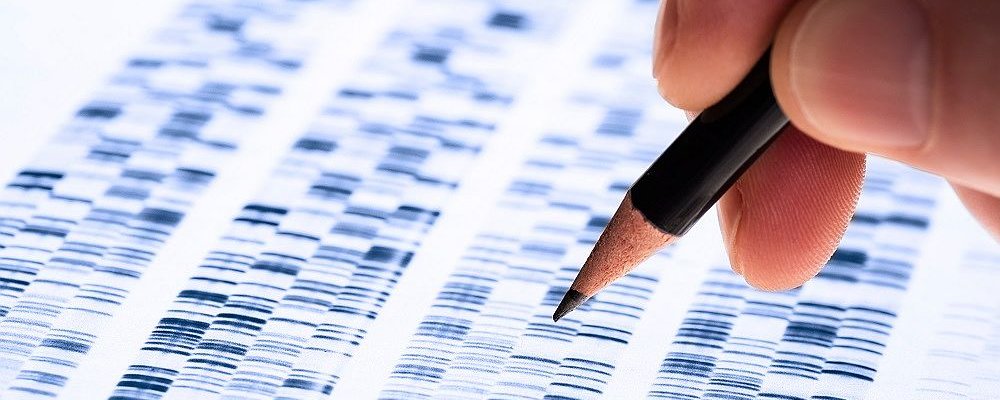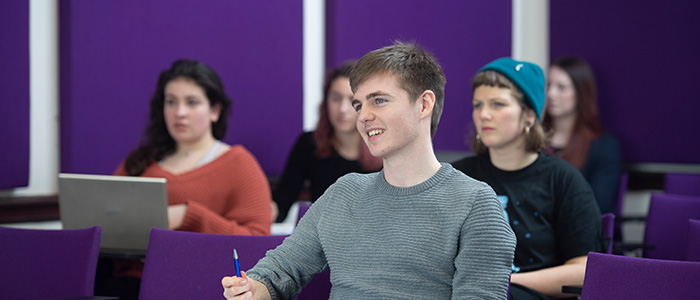Molecular Genetics PhD/iPhD/MSc (Research)

Our research lies at the interface of organismal, functional and systems biology. Our principal investigators are internationally-recognised for their research on insect functional genomics, mechanism and application of DNA-rearranging enzymes, the translational genetics of myotonic dystrophy and related unstable DNA disorders and systems biology including ‘omics analysis and computational frameworks.
- PhD: 3-4 years full-time; 5 years part-time;
- MSc (Research): 1 year full-time; 2 years part-time;
- IPhD: 5 years full-time;
Research projects
+++
Identification of cis- and trans-acting genetic modifiers of somatic expansion as novel therapeutic targets in the repeat expansion disorders
Supervisor: Darren Monckton
Project description: At least 40 human disorders, including Huntington disease and myotonic dystrophy, are caused by the expansion of a simple sequence repeat [1].
More repeats are associated with a more severe form of the disease. Expanded disease-associated alleles are highly unstable and frequently expand during intergenerational transmission accounting for the anticipation observed in these disorders. Expanded disease-associated alleles are also unstable in the soma, in a process that is age-dependent, tissue-specific, and expansion-biased [2].
Notably, large expansions accumulate in affected tissues, such as the brain in Huntington disease and muscle in myotonic dystrophy, driving the tissue specificity and progressive nature of the symptoms. We have also established that residual variation in age at onset and disease severity not accounted for by inherited repeat length is inversely associated with residual variation in somatic expansion rates not accounted for by inherited repeat length and age (i.e., individuals in who the repeat expands more rapidly, get earlier and more severe symptoms than expected)[3-6].
As such, prevention of somatic expansions presents as a novel therapeutic target in these disorders. Insights from animal and cell models have revealed that expansions are critically dependent on the DNA mismatch repair pathway. Using candidate gene and genome-wide association studies we have also revealed that common polymorphisms in the some DNA repair genes modify the rate of somatic expansion and disease severity in both myotonic dystrophy type 1 and Huntington disease [5,7-10] However, powerful as such approaches are, the application of genome wide association studies in the repeat expansion disorders is limited by the rarity of the conditions that generally precludes the assembly of the very large cohorts needed to conduct them.
However, although expansions at the disease associated loci are rare, at least one locus, ERDA1, presents with a high frequency of expanded alleles (~20%) in the general population. These alleles are not associated with a disease state, but are genetically unstable. It is our hypothesis that, as we have done at the Huntington disease [5,11] and myotonic dystrophy type 1 loci, we can use high-throughput ultra-deep sequencing to derive individual-specific measures of mutational dynamics that act as biomarkers of genetic instability and can be used as molecular phenotypes in genome wide association studies. To this end, the student will address the following aims:
- Develop assay. Develop high-throughput ultra-deep sequencing assay for sequencing the triplet repeat at the ERDA1 locus.
- Determine the range of ERDA1 alleles present in general population. Sequence large numbers of alleles in the general population (from the Generation Scotland collection) to derive allele length distribution and identify potential variant repeats that we have shown to have a profound effect as cis-acting modifiers of somatic mutational dynamics and disease severity in myotonic dystrophy type 1 and Huntington disease [5,12].
- Measure somatic instability. The data generated will be used to quantify the degree of somatic mosaicism in the general population and determine the role of sequence purity, allele length and age in mediating the degree of somatic instability.
- Identification of therapeutic targets. After correcting for sequence purity, allele length and age, residual variation in somatic mosaicism will be used as a molecular phenotype in a genome wide association study in the Generation Scotland cohort. The results will identify novel therapeutic targets for the repeat expansion disorders.
Training outcomes: The studentship will provide training in state-of-the-art DNA sequencing technologies, bioinformatics (including use of the Galaxy platform), computational modelling and core skills such as the use of mathematics and statistics in handling large datasets and experimental design.
References
- Monckton. 2021. The contribution of somatic expansion of the CAG repeat to symptomatic development in Huntington’s disease: a historical perspective. J Huntingtons Dis 10, 7–33. https://doi.org/10.3233/JHD-200429
- Monckton et al. 1995. Somatic mosaicism, germline expansions, germline reversions and intergenerational reductions in myotonic dystrophy males: small pool PCR analyses. Hum Mol Genet 4, 1–8. https://doi.org/10.1093/hmg/4.1.1
- Overend et al. 2019. Allele length of the DMPK CTG repeat is a predictor of progressive myotonic dystrophy type 1 phenotypes. Hum Mol Genet 28, 2245–2254. https://doi.org/10.1093/hmg/ddz055
- Cumming et al. 2019. Genetic determinants of disease severity in the myotonic dystrophy type 1 OPTIMISTIC cohort. Neurology 93, e995-e1009. https://doi.org/10.1212/WNL.0000000000008056
- Ciosi et al. 2019. A genetic association study of glutamine-encoding DNA sequence structures, somatic CAG expansion, and DNA repair gene variants, with Huntington disease clinical outcomes. EBioMedicine 48, 568–580. https://doi.org/10.1016/j.ebiom.2019.09.020
- Morales et al. 2012. Somatic instability of the expanded CTG triplet repeat in myotonic dystrophy type 1 is a heritable quantitative trait and modifier of disease severity. Hum Mol Genet 21, 3558–3567. https://doi.org/10.1093/hmg/dds185
- Morales et al. 2016. A polymorphism in the MSH3 mismatch repair gene is associated with the levels of somatic instability of the expanded CTG repeat in the blood DNA of myotonic dystrophy type 1 patients. DNA Repair 40, 57-66. https://doi.org/10.1016/j.dnarep.2016.01.001
- Genetic Modifiers of Huntington’s Disease Consortium et al. 2019. CAG repeat not polyglutamine length determines timing of Huntington’s disease onset. Cell 178, 887–900. https://doi.org/10.1016/j.cell.2019.06.036
- Flower et al. 2019. MSH3 modifies somatic instability and disease severity in Huntington's and myotonic dystrophy type 1. Brain 142, 1876–1886. https://doi.org/10.1093/brain/awz115
- Morales et al. 2016. A polymorphism in the MSH3 mismatch repair gene is associated with the levels of somatic instability of the expanded CTG repeat in the blood DNA of myotonic dystrophy type 1 patients. DNA Repair 40, 57–66. https://doi.org/10.1016/j.dnarep.2016.01.001
- Ciosi et al. 2018. Library preparation and MiSeq sequencing for the genotyping-by-sequencing of the Huntington disease HTT exon one trinucleotide repeat and the quantification of somatic mosaicism. Protocol Exchange. https://doi.org/10.1038/protex.2018.089
- Cumming et al. 2018. De novo gain of variant repeats in myotonic dystrophy type 1 is associated with reduced somatic instability and mild or absent clinical features. Eur J Hum Genet 26, 1635–1647. https://doi.org/10.1038/s41431-018-0156-9
Applications accepted all year round.
---
+++
Mechanisms and applications of DNA site-specific recombinases
Supervisor: Marshall Stark
Outline & aim: Site-specific recombinases are enzymes that promote rearrangements of DNA molecules, by cutting and rejoining DNA strands at precise places within short target sequences (sites). For example, a specific piece of DNA can be cut out of a larger molecule, or its orientation can be reversed. Our research group aims to understand in detail how recombinases catalyse these reactions, and how they are controlled. To do this we use high-resolution structural data and advanced techniques for laboratory analysis. Site-specific recombinases have tremendous potential as tools for manipulating DNA in the fields of biotechnology, synthetic biology and gene therapy. We are investigating how to engineer “designer recombinases” that are suitable for these purposes, and how to use them for novel applications.
The aim of the research project will be to advance our understanding in one of the areas outlined above. For example, the project might be an investigation of the mechanism of DNA strand cutting and rejoining, using novel “single-molecule” methodologies, or to develop novel designer recombinases suitable for targeting specific genes in a living organism for deletion or modification.
Techniques:
- analysis of high-resolution structures
- protein expression, purification and biochemistry
- methods for manipulation of DNA in E. coli
- cloning, sequencing, sequence analysis
- synthetic biology
- novel methods for gene assembly
- advanced methods for analysis of protein-DNA complexes, including single-molecule methods
References
- Olorunniji, F.J. Rosser, S.J. and Stark, W.M. (2016) Site-specific recombinases: molecular machines for the Genetic Revolution. Biochem. J. 473, 673-684.
- Olorunniji, F.J. et al. (2017). Control of serine integrase recombination directionality by fusion with the directionality factor . Nucleic Acids Res. 45, 8635-8645.
- Proudfoot, C., McPherson, A.L., Kolb, A.F. and Stark, W.M. (2011) Zinc Finger recombinases with adaptable DNA sequence specificity. PLoS ONE 6, e19537.
---
Overview
Our staff have leading expertise and funding in human and model organism research including Drososophila melanogaster and microbes; as well as ‘omics - genomics, transcriptomics and metabolomics. They utilise a multi-disciplinary approach within the School of Molecular Biosciences with core links to Glasgow Polyomics; and have good external links with industry. Research in molecular genetics has strong alignment with the broad areas of agriculture and food security; bioscience for health; and industrial biotechnology and bioenergy.
Research topics are allied to ongoing research within the School. Projects can be related to either fundamental or translational science including clinical science and sustainable agriculture. Multi-disciplinary research approaches applied within the molecular genetics research programme include molecular genetics (human, Drosophila and microbial genetics), biochemistry, molecular biology, systems biology, ‘omics (genomics, transcriptomics, proteomics, metabolomics), bioinformatics and synthetic biology, as well as cellular imaging of biological functions using advanced technology. Specific areas of interest include:
- modelling kidney disease in Drosophila
- insect neuropeptides and GPCRs
- ‘omics and network modelling in Drosophila
- designer recombinases for genome engineering
- DNA rearrangements for Synthetic Biology
- topoisomerases and DNA topology
- mutational dynamics of unstable DNA in human disease
- new approaches to transcriptomic data analysis
- computational frameworks for omics data integration
Our PhD programme provides excellent training in cutting edge technologies that will be applicable to career prospects in both academia and industry. Many of our PhD graduates go on to research positions in academia, as well as to industry, and to policy and government organisations.
We have strong research connections with international collaborators. Funds are available through the College of Medical, Veterinary and Life Sciences to allow visits to international laboratories where part of your project can be carried out. This provides an excellent opportunity for networking and increasing the scientific knowledge and skill set of our PhD students.
Study options
PhD
- Duration: 3/4 years full-time; 5 years part-time
Individual research projects are tailored around the expertise of principal investigators.
Integrated PhD programmes (5 years)
Our Integrated PhD allows you to combine masters level teaching with your chosen research direction in a 1+3+1 format.
International students with MSc and PhD scholarships/funding do not have to apply for 2 visas or exit and re-enter the country between programmes. International and UK/EU students may apply.
Year 1
Taught masters level modules are taken alongside students on our masters programmes. Our research-led teaching supports you to fine tune your research ideas and discuss these with potential PhD supervisors. You will gain a valuable introduction to academic topics, research methods, laboratory skills and the critical evaluation of research data. Your grades must meet our requirements in order to gain entry on to your pre-selected PhD research project. If not, you will have the options to pay outstanding MSc fees and complete with masters degree only.
Years 2, 3 and 4
PhD programme with research/lab work, completing an examinable piece of independent research in year 4.
Year 5
Thesis write up.
MSc (Research)
- Duration: 1 year full-time; 2 years part-time
Entry requirements
A 2.1 Honours degree or equivalent.
English language requirements
For applicants whose first language is not English, the University sets a minimum English Language proficiency level.
International English Language Testing System (IELTS) Academic module (not General Training)
- 6.5 with no subtests under 6.0
- Tests must have been taken within 2 years 5 months of start date. Applicants must meet the overall and subtest requirements using a single test.
Common equivalent English language qualifications accepted for entry to this programme:
TOEFL (ibt, my best or athome)
- 79; with Reading 13; Listening 12; Speaking 18;Writing 21
- Tests must have been taken within 2 years 5 months of start date. Applicants must meet the overall and subtest requirements , this includes TOEFL mybest.
Pearsons PTE Academic
- 59 with minimum 59 in all subtests
- Tests must have been taken within 2 years 5 months of start date. Applicants must meet the overall and subtest requirements using a single test.
Cambridge Proficiency in English (CPE) and Cambridge Advanced English (CAE)
- 176 overall, no subtest less than 169
- Tests must have been taken within 2 years 5 months of start date. Applicants must meet the overall and subtest requirements using a single test.
Oxford English Test
- Oxford ELLT 7
- R&L: OIDI level no less than 6 with Reading: 21-24 Listening: 15-17
- W&S: OIDI level no less than 6
Trinity College Tests
Integrated Skills in English II & III & IV: ISEII Distinction with Distinction in all sub-tests.
University of Glasgow Pre-sessional courses
Tests are accepted for 2 years following date of successful completion.
Alternatives to English Language qualification
- Degree from majority-English speaking country (as defined by the UKVI including Canada if taught in English)
- students must have studied for a minimum of 2 years at Undergraduate level, or 9 months at Master's level, and must have complete their degree in that majority-English speaking country and within the last 6 years
- Undergraduate 2+2 degree from majority-English speaking country (as defined by the UKVI including Canada if taught in English)
- students must have completed their final two years study in that majority-English speaking country and within the last 6 years
For international students, the Home Office has confirmed that the University can choose to use these tests to make its own assessment of English language ability for visa applications to degree level programmes. The University is also able to accept UKVI approved Secure English Language Tests (SELT) but we do not require a specific UKVI SELT for degree level programmes. We therefore still accept any of the English tests listed for admission to this programme.
Pre-sessional courses
The University of Glasgow accepts evidence of the required language level from the English for Academic Study Unit Pre-sessional courses. We also consider other BALEAP accredited pre-sessional courses:
Fees and funding
Fees
2024/25
- UK: £4,786
- International & EU: £30,240
Prices are based on the annual fee for full-time study. Fees for part-time study are half the full-time fee.
Irish nationals who are living in the Common Travel Area of the UK, EU nationals with settled or pre-settled status, and Internationals with Indefinite Leave to remain status can also qualify for home fee status.
Alumni discount
We offer a 20% discount to our alumni on all Postgraduate Research and full Postgraduate Taught Masters programmes. This includes University of Glasgow graduates and those who have completed Junior Year Abroad, Exchange programme or International Summer School with us. The discount is applied at registration for students who are not in receipt of another discount or scholarship funded by the University. No additional application is required.
Possible additional fees
- Re-submission by a research student £540
- Submission for a higher degree by published work £1,355
- Submission of thesis after deadline lapsed £350
- Submission by staff in receipt of staff scholarship £790
Depending on the nature of the research project, some students will be expected to pay a bench fee (also known as research support costs) to cover additional costs. The exact amount will be provided in the offer letter.
Funding
The iPhD is not supported by University of Glasgow Scholarship/Funding
Support
The College of Medical, Veterinary and Life Sciences Graduate School provides a vibrant, supportive and stimulating environment for all our postgraduate students. We aim to provide excellent support for our postgraduates through dedicated postgraduate convenors, highly trained supervisors and pastoral support for each student.
Our overarching aim is to provide a research training environment that includes:
- provision of excellent facilities and cutting edge techniques
- training in essential research and generic skills
- excellence in supervision and mentoring
- interactive discussion groups and seminars
- an atmosphere that fosters critical cultural policy and research analysis
- synergy between research groups and areas
- extensive multidisciplinary and collaborative research
- extensive external collaborations both within and beyond the UK
- a robust generic skills programme including opportunities in social and commercial training
How to apply
Identify potential supervisors
All Postgraduate Research Students are allocated a supervisor who will act as the main source of academic support and research mentoring. You may want to identify a potential supervisor and contact them to discuss your research proposal before you apply. Please note, even if you have spoken to an academic staff member about your proposal you still need to submit an online application form.
You can find relevant academic staff members with our staff research interests search.
Gather your documents
Before applying please make sure you gather the following supporting documentation:
- Final or current degree transcripts including grades (and an official translation, if needed) – scanned copy in colour of the original document.
- Degree certificates (and an official translation, if needed): scanned copy in colour of the original document
- Two references on headed paper and signed by the referee. One must be academic, the other can be academic or professional [except iPhD applicants, where only one academic or professional reference is required]. References may be uploaded as part of the application form or you may enter your referees contact details on the application form. We will then email your referee and notify you when we receive the reference. We can also accept confidential references direct to rio-researchadmissions@glasgow.ac.uk, from the referee’s university or business email account.
- Research proposal, CV, samples of written work as per requirements for each subject area. iPhD applicants do not need to submit any of these as you will start your programme by choosing a masters.
- Completed College of MVLS Postgraduate Research Cover Letter
Notes for iPhD applicants
- add 'I wish to study the MSc in (select MSc from IPhD project choices) as the masters taught component of the IPhD' in the research proposal box
- For supervisor name, please ensure you write the named supervisors from your chosen IPhD project.
Contact us
Before you apply
PhD/MSc/MD: email mvls-gradschool@glasgow.ac.uk
iPhD: email mvls-iphd@glasgow.ac.uk
After you have submitted your application
PhD/MSc/MD/iPhD: contact our Admissions team
Any references may be submitted by email to: rio-researchadmissions@glasgow.ac.uk

Our research environment



